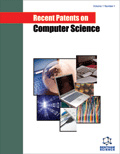Abstract
The Internet of Things (IoT) has garnered many ideas to create new IoT
products as well as enhance their existing products with the help of the internet. Tesla
is an example of an IoT device from the automotive industry. The most prominent
feature of the vehicle was the over-the-air (OTA) updates. A few vulnerabilities were
found in Tesla despite being one of the most secure vehicles in the world. The first
vulnerability was in the vehicle's key system, where radio signals from the key fob
were intercepted in a relay attack. The next vulnerability was due to the Tesla app,
where the hacker obtained the owner's login credentials. Besides, the infotainment
system of the vehicle also was compromised and hacked using a web browser bug
known as a JIT bug. Lastly, Tesla vehicles also had a vulnerability in their navigation
system too. This was demonstrated by a group of researchers who staged a GPS spoof
attack on Tesla model 3 while it was in Autopilot mode. Fake satellite coordinates were
transmitted by the researchers, who were then received by the GPS receiver. This
caused the vehicle to decelerate and made an emergency turn-off at a narrow pit stop.
These vulnerabilities can be fixed by following safety measures to counter cyberattacks. More layers of security should be installed on the existing security system to
ensure the vehicle does not get exploited easily by hackers.






















